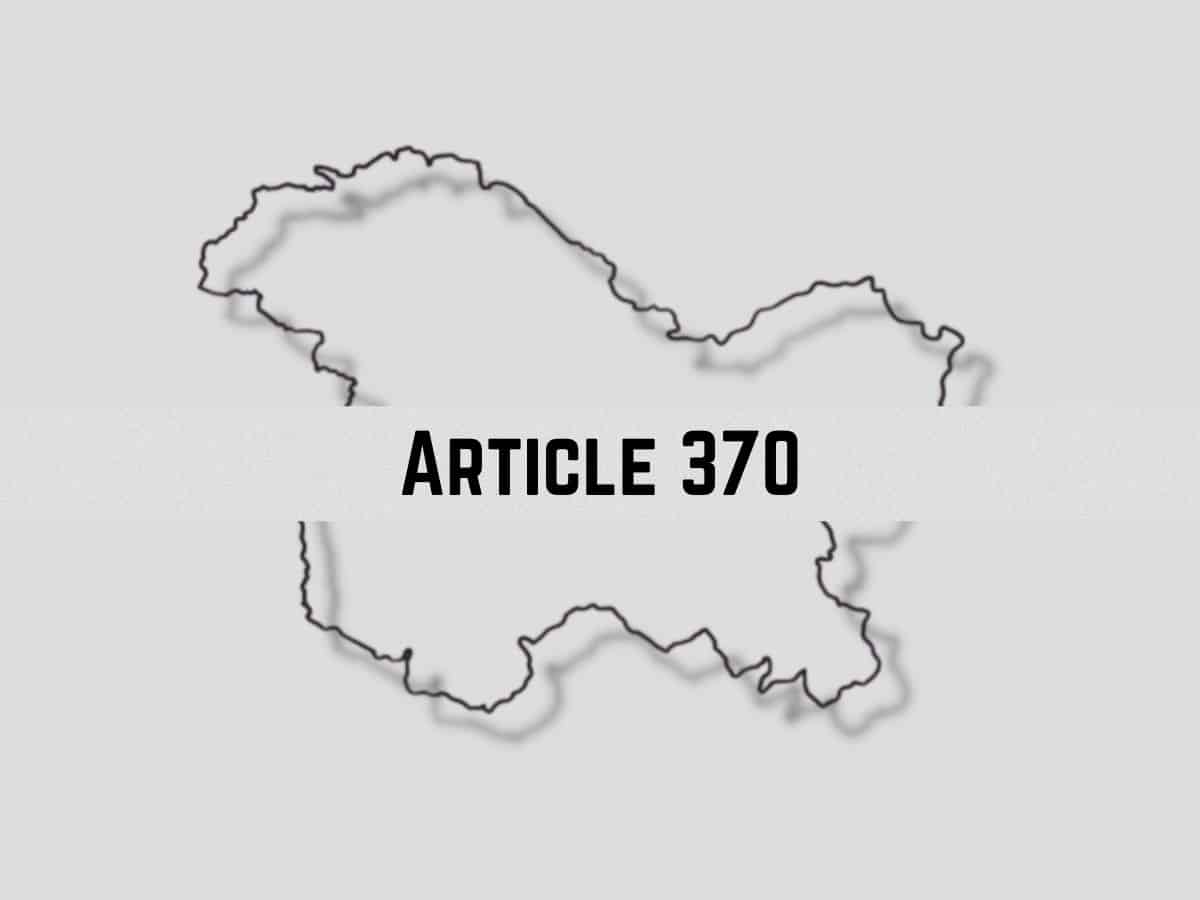
The ongoing hearing of the petitions challenging the revocation of Article 370 that commenced on Wednesday will bring out both historical and new dynamics about Jammu and Kashmir, which are critical to the days when this constitutional provision was born, till the day its termination was announced on August 5, 2019. Alongside the international dimensions will also come into the discussion for J&K has been in the international attention ever since it was invaded by Pakistan and it acceded to India in October 1947. That is what the arguments on the first day of the day-to-day hearing on Wednesday seemed to outline.
Till this point, the debate seems to be veering around whether a temporary provision in the Indian constitution could become permanent. This is a legal issue. The Constitution bench of the Supreme Court, headed by Chief Justice D Y Chandrachud, has asked very relevant questions about Article 370 and how it could be revoked.
Kapil Sibal, the counsel for the petitioners who challenged the abrogation of Article 370 on August 5, 2019, has brought the whole historical perspective to the fore – showcasing the events that made Maharaja Hari Singh of Jammu and Kashmir to accede to India and with what conditions. It is clear, from the historical documents that the Dogra king had no inclination to accede to India or Pakistan, as if that would have been his intention, he could have taken this decision before August 15, 1947, by which time both India and Pakistan had become independent. Jammu and Kashmir was an independent state, not in the category of the princely states under British rule.
Jammu and Kashmir was an independent state, with a vast Muslim majority. So, Maharaja’s dilemma was clear- he could not have acceded to Pakistan because he was fearful about the Hindu minority in a nation founded as an Islamic nation, and within India, his Muslim majority population would not have permitted him to do so.
Now when the hearing is going, the whole instrument of accession, circumstances, and the consequences will come before the apex court. In simple words, the hearing and the nature of the discussion it promises would reflect on the international dynamics as well, besides the relationship between Srinagar and Delhi. Article 370 was born out of the international situation. Pakistan’s invasion of Jammu and Kashmir had forced the hands of Maharaja Hari Singh to seek military assistance, and it was in lieu of military aid by India that prompted him to sign the instrument of accession, acceding the state to India with the preconditions that the Government of India would be responsible for foreign affairs, defense, and communications, while all other affairs of the state would rest with the state government.
Article 370 too birth because of historical factors – India was at war with Pakistan in 1947-48 and the war theatre was Jammu and Kashmir, the matter of Pakistan’s aggression had been flagged off to the United Nations by India’s first prime minister Jawaharlal Nehru, in the hope that the world body would term Pakistan as an aggressor and force it to withdraw its regular army soldiers and tribesmen from the Indian territory, as J&K had become part of the country, due to the instrument of accession. But as it turned out, the UN asked India and Pakistan to hold a plebiscite to determine the choice of the people of the whole of the state, to which country they wanted to live in.
The international players were there – the UN, India, and Pakistan.
If Article 370 was born out of the situation that had its international dynamics, it was abrogated by the Narendra Modi government, to assert that Article 370 was temporary, and the Government of India had an absolute right to decide about the matters concerning Jammu and Kashmir. August 5, 2019, was the defining moment. It was a snub to Pakistan, China, and other countries that had been terming “Kashmir as a disputed territory.” The government had sought international legitimacy of its actions by first bringing in Members of the European Parliament to visit Kashmir and then Delhi based ambassadors of some of the important countries, including the United States.
As on August 5, 2019, the historical aspects of Jammu and Kashmir were crisscrossing with the international community’s opinion. It is, now clear, that Delhi had gone into diplomatic drive before removing Article 370, as most of the world, including Islamic countries, barring Pakistan and Turkey, did not utter even a word on the development, despite Pakistan raising the hype and asking the Organization of Islamic Cooperation (OIC) to take note of what it called “unilateral decision of India, in violation of the UN resolutions on Kashmir, with an attempt not only to change the status of Jammu and Kashmir but also to hurt the demography of the state, hurting Muslim majority.”
At this point in time when the hearing is going on in the Supreme Court, all these issues will come up. There is no escape from it.
